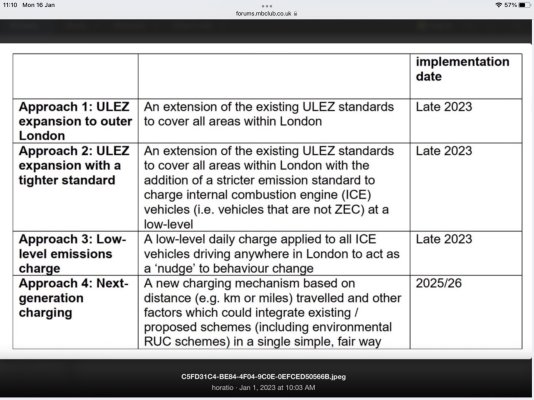- Joined
- Jun 24, 2008
- Messages
- 49,930
- Location
- London
- Car
- 2022 Hyundai IONIQ 5 RWD / 2016 Suzuki Vitara AWD
It's a tax. Nothing more and nothing less. A common scam by penalizing the 99% and suggesting that they can avoid the inconvenience by taking on a bigger burden of buying a new car. Didn't they do the same thing with diesel 20 years ago?
Cars pollute less than they did 30 years ago and as a result, you don't hear of smog in cities like London or Los Angeles for that matter and newer cars will naturally take over without the need of ULEZ. So what's going to happen when all cars become Ulez compliant? Will the city give up this revenue? I doubt it.
The big question is how does this thread stop the expansion?
Yes it's a tax, but it's a tax that can be avoided. People affected can either use public transport where possible, or replace their Diesel cars with petrol cars (any petrol car registered after 2004 is compliant).
As for pollution... there's data to show that NOx emissions from car exhausts in built-up areas are causing health problems. Why dismiss it?
BTW, I don't disagree with the premise that this move was politically and financially motivated, but even so, it does not mean that the move itself is wrong.


